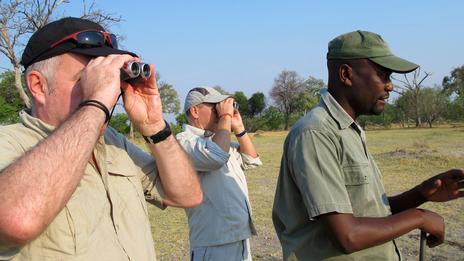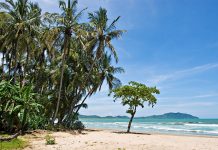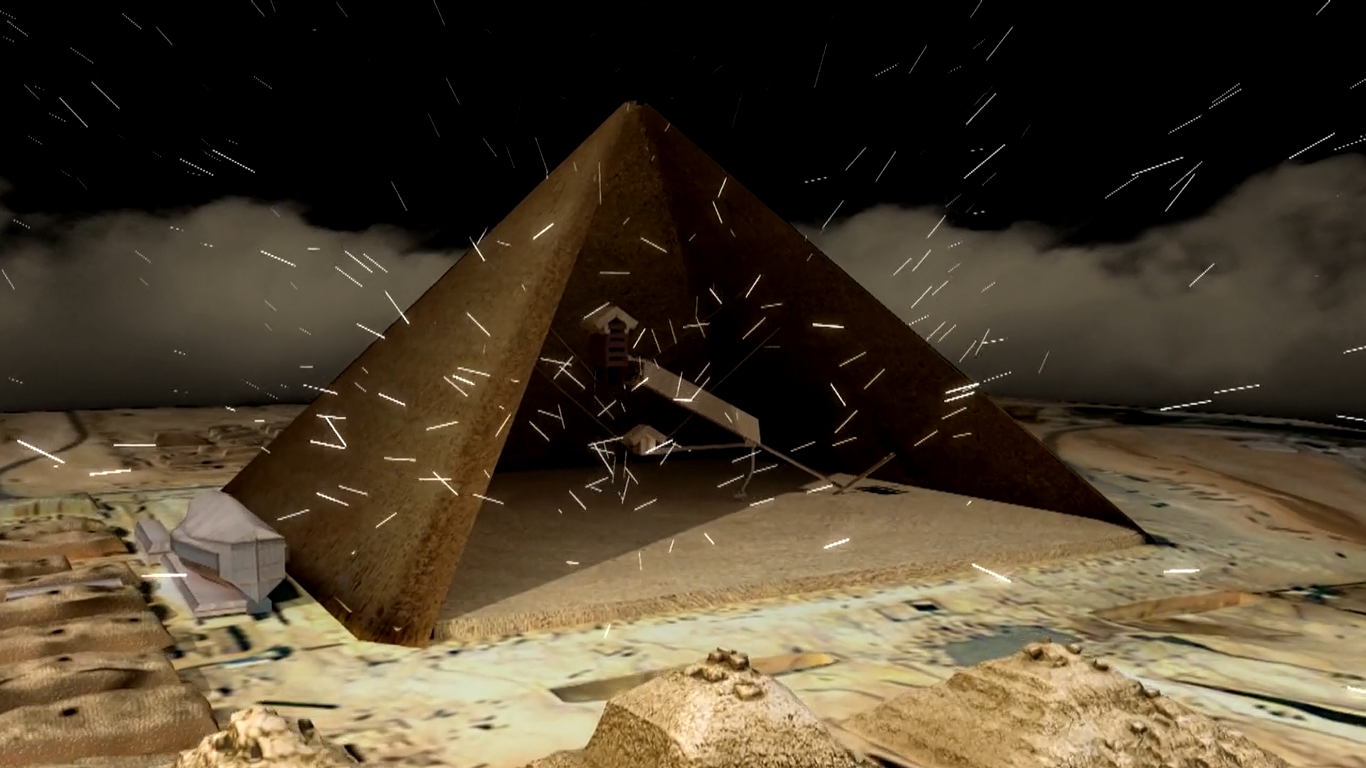This post may contain affiliate links. We may earn money or products from the highlighted keywords or companies or banners mentioned in this post.
Taking a simple walk had never seemed so dangerous. Gathered around a camp table set up with maps, field guides – and gin and tonics – we plotted our stroll into the late afternoon heat. Normally jovial, our guide Paul Ditiro looked around the group, fixing us with a serious look. “The first rule is no running – at all,” he said, his usual glimmer of mirth buried in the gravity of the moment. “And we will walk in a single file line, with me at the head. We have four of the big five out there – and you can easily stumble into them. This is the best way to truly encounter nature. You can smell and touch and taste and feel it. It’s a truly unique thrill.”
I was at Footsteps Across the Delta, a small, remote camp deep in the heart of Botswana’s famed Okavango Delta. As its name suggests, Footsteps focuses exclusively on “walking safaris”, small hikes that bring people out from the jeep – and their comfort zone – and onto the dry, African soil. Here, I would take two daily hikes, always accompanied by an armed guide. The Okavango surrounds travellers with a plethora of bird and animal life, but I was here seeking just one thing: big cats.
Our group was an unlikely band of adventurers – a middle-aged doctor-lawyer couple from Scotland, an elderly but able Spanish couple from Barcelona, and me: a tenacious – but slightly terrified – travel writer. As we ambled out of camp, headed for a small pond known as Paul’s Pan (so-named by our leader, after himself), poufs of dust billowed out from under our boots. The Okavango is part of the Kalahari Desert, and nothing but a thin layer of scorched grass and 300m of sand lay under our feet. Botswana is a perennially thirsty country, a place that’s 70% desert, where a drop doesn’t reach the ground for 10 months of the year. Perhaps to appease the gods of precipitation, the country has named both its currency and its national road system pula – in English, rain.

- Paul Ditiro, leading the pack. (Tim Johnson)
But being here just a few weeks before the start of the annual December rains gave us a strategic advantage in our search for felines. During the dry season, animals don’t have the luxury of shady, green hiding places. They’re flushed out onto the barren, brown savannah, and forced to gather at the few sources of water not yet sapped by the relentless and unforgiving sun.
Indeed, not 10 minutes into our first walk, we came across some wildlife – two giraffes, which we caught in the middle of a rather private moment. The jokes flowed naturally. “Ah, look at those two necking,” one of the Scots said. “She only wanted a back rub,” chipped in one of the Spaniards. Ditiro used this as a teachable moment. As the giraffes decided to make trails away from us – looking none too happy – Ditiro explained the humans have binocular vision, something that we share with all other predators. When prey animals (zebras, antelopes, giraffes) see eyes on the front of the head, they instinctually know that the animal (lion, leopard, or human) is a threat.

- Giraffes at sunrise. (Cameron Spencer/Getty)
Ditiro then switched gears, kneeling down over a big, dry pile of scat. “You see, even elephant dung is fascinating,” he said, picking through it with a stick. He proceeded to open it up, showing us what the animal had eaten, and explaining how, in years past – and sometimes, even now – the stuff was used in the day-to-day lives of locals. “This dung can have medicinal qualities, and when you burn it, it keeps away mosquitoes,” he explained.
We proceed farther out from camp, skirting both Paul’s Pan and another small pond, the latter inhabited by a single, ornery hippo who snorted his displeasure as we passed. “He is showing us how tough he us,” Ditiro explained with a smile. As we walked, Ditiro shared stories from more than a decade of guiding at Footsteps – from the time their resident hyena, nicknamed Fat Albert, snuck in and sunk his teeth into a fire extinguisher, causing it to explode (he was fine, and back in camp scavenging again a few nights later) – to the night a leopard brought her kill into camp and ate it in a tree, right over top the campfire (fortunately, everyone was safely ensconced in their tents).












